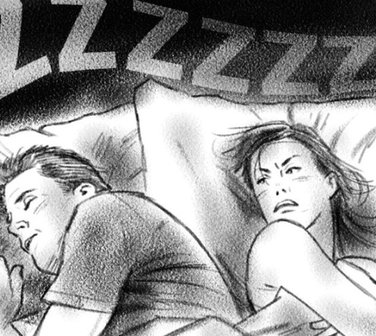Getting dads involved boosts breastfeeding
Breastfeeding is officially no longer women’s business. Curtin University scientific studies have shown an informed and supportive father is one of the most effective weapons in the battle to get mothers to breastfeed longer.
The Healthway-funded School of Public Health research discovered that with a few hours of coaching, fathers can be an essential back-up, lowering the risk of a struggling mother giving up due to being overwhelmed by self-doubt, fatigue or the “hard work”.
Across all age groups and socio-economic levels, the mother was one and a half times more likely to keep on breastfeeding if the father had attended a single male-only class on breastfeeding benefits and anatomy as well as communication and support. If the father was older, the effect was even greater, with those mothers 3.5 times more likely to be breastfeeding at six weeks.
This lesson was taught by a male nurse or educator, then followed up by six weeks of phone calls to the father or educational information and novelty items sent in the mail, including a beer stubby holder stating “Smarter, Stronger, Breastfeed Longer”.
There is now a push to extend the program, which 99 per cent of the 340 participating WA fathers rated as worthwhile, and offer postnatal, interactive support online.
“These dads had the original belief that breastfeeding was women’s business and they were desperate to become involved but they just did not know how, ” Curtin School of Public Health head Professor Bruce Maycock said.
“I think one of the things that had been undersold by antenatal classes was just how difficult breastfeeding was going to be. We were able to say, ‘Look guys, breastfeeding is often hard work and 80 per cent of new mums are going to have some problems with breastfeeding so you need to plan how you can help.
“We took them through the anatomical changes that happen as the infant grows and showed how small the stomach is initially. Then we talked about how breast milk was designed to pass through the system to provide nutrition quite quickly and hence the feeding every two hours initially.
“We explained that part of the allure of formula is that it stays in the gut longer and so there is this sense that maybe it is better for them because it is staying there. But it is just that it is not processed as quickly.”
During the class, fathers were asked to consider how they could support the breastfeeding mother and who they could call in, in their absence, if they had to travel away for work.
“We were also saying, ‘Do not assume that you know what your partner wants’. It might not be clean the house and do the nappies. It might be just take the baby out for an hour or two and give them some space.”
Professor Maycock said the rose-coloured glasses message that breastfeeding was “natural and easy” was not always helpful because it did not prepare parents for possible struggles and the need for extra support. “We as a community do not discuss this stuff enough, ” he said. “You would imagine that breastfeeding would be one of the public health issues that we would have right. But we actually don’t. At some point, we have forgotten to say that it is going to be really tiring and it may be painful.
“Yet, at the same time, there are so many benefits, including the bonding experience and nutritionally, immunologically and psychologically it is better for the child. There is also some really good evidence that the longer the child is breastfed, the lower the likelihood of childhood obesity and chronic disease later in life.
Professor Maycock said the program was one of the most rewarding projects he had been involved in. Still there were challenges to face, including overcoming the view among some hospital staff that the father was just an “accessory”.
© The West Australian
More Lifestyle news at thewest.com.au









